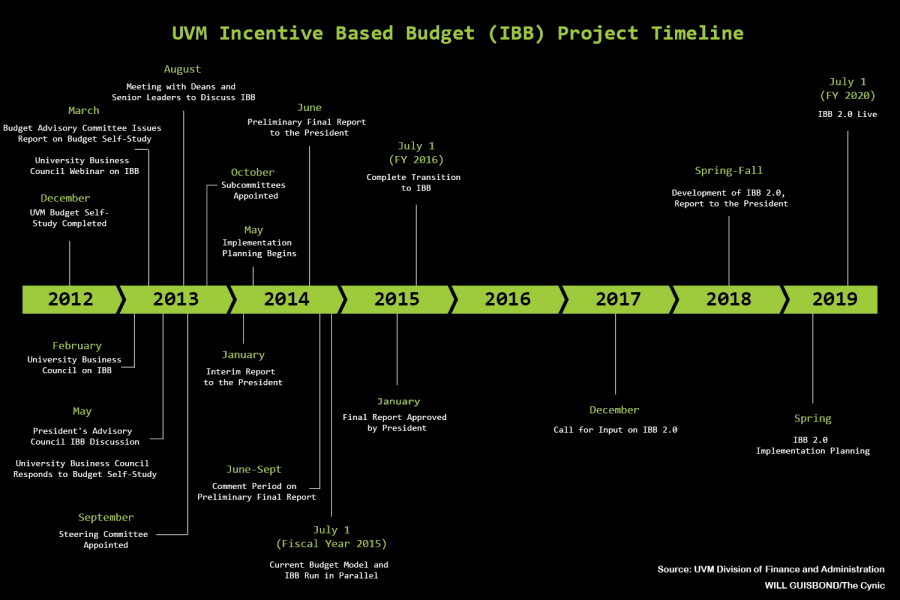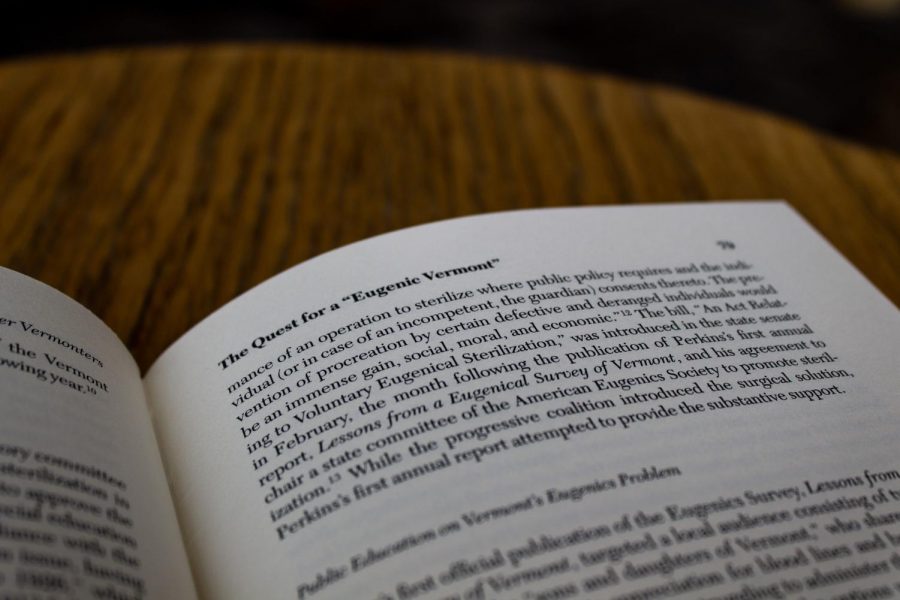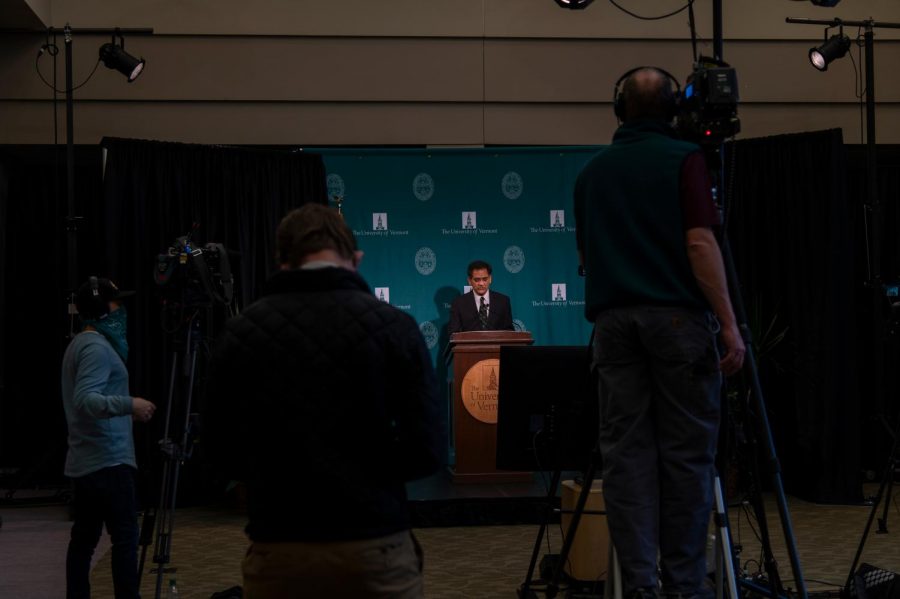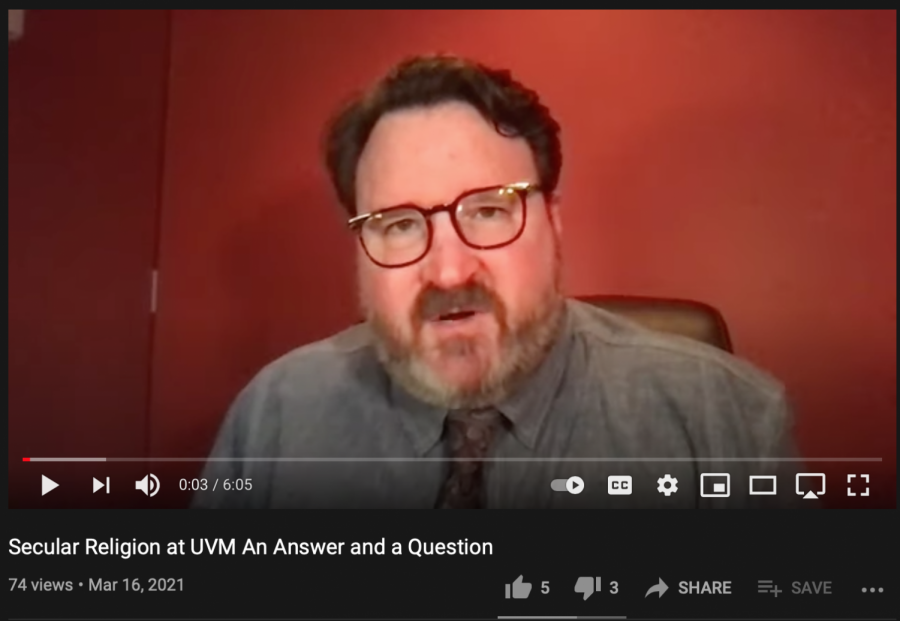The Vermont Cynic: How did you become interested in forestry?
Abigail Kimbell: As a teenager, I was a junior counselor for a day camp and had an opportunity to hear a guy talking about how trees grow and how you measure trees, and it was my first realization that you could use math and science outdoors.
He was talking about forestry, forest management, how you measure trees, how trees grow, how you calculate all of that … I have always enjoyed math and science, but I have always enjoyed being outdoors.
VC: What did you envision for yourself when you first chose to study forestry?
AK: When I first chose to study forestry, I don’t know that I envisioned a career. More than that, I envisioned learning everything I could about trees.
VC: Why did you choose UVM for your undergraduate study?
AK: I went to high school in Vt. and UVM had a good math and science program and that seemed to be a nice fit.
VC: What positions or jobs do you think current UVM students should be looking toward if choosing a future in forestry today?
AK: It really depends so much on an individual’s interest. There are jobs in GIS (Geographic Information Systems), data analysis, conflict management and mediation … there are emerging jobs which would require that people have backgrounds in financial markets.
There is real estate, the whole field of actual forest management on the ground – so silviculture, logging, forest hydrology … so it depends on what a person really is interested in.
So current UVM students, if they are going to choose a future in forestry, should choose an aspect of forestry that they really enjoy, that really excites them and that they are going to keep working on learning all they can about it.
VC: What are some recurring things that the Forest Chief does every day?
AK: I go to a lot of meetings, I talk on the phone … but every day is different.
A recurring theme is that there is some real competition for wild land resources, and it requires getting a lot of different interests together to work to resolve some of these things within the authorities and talents that we collectively have access to across government.
No two days are the same.
VC: What changes in the public’s mentality toward conservation and sustainability have you seen in your experience in forestry?
AK: I finished up at UVM in 1974, and I think that we went through a whole period in the late ’70s and through the ’80s of real contention, and it was an awakening of the American public to wanting to be involved in government.
I think that was something that grew in the ’60s and just really took off in the ’70s and into the ’80s.
But the change that I’ve seen over my career and since I’ve left UVM has really been around people getting a much better understanding of conservation and how all of these things are connected … that our consumption as a society is connected to how we choose to manage our resources and our position on the planet.
Americans consume way more than the average per capita on the planet and we live a lifestyle that is dependent on the natural resources of other nations.
I think there is just a growing awareness through the American public on what sustainability might be and I am encouraged that people are paying more and more attention to that.
VC: Have your positions or responsibilities changed with the new administration in the White House?K: Oh boy, it hasn’t even been a week.
There will certainly be a change in the personalities and the styles of the people that I will be working with … my position is really unique in government in that I am in a career position, whereas my counterparts with the Bureau of Land Management, the Fish and Wildlife Service, the Parks Service … those are all political appointee positions, so those people haven’t even been named … and it will be many months before they are in place.
So, that makes the Forest Service really unique in natural resource management on a federal level that way.
The things that are being emphasized right now by the new Secretary of Agriculture, Tom Vilsack, certainly echo President Obama’s writing and speeches … and the emphasis areas will be climate change, energy, economic stimulus and things like openness in government.
I think the Forest Service has been working very, very hard over the last several years to implement a climate change framework. We have over 20 years of hard science and evidence in climate change.
Every year we make adjustments in our science program to make sure that it is focused on the issues of the day as well as the long-term issues.
I believe the Forest Service is very well-positioned to respond to the kinds of things that both President Obama and Secretary Vilsak are going to be emphasizing. I look forward to working with this new administration.
It is very exciting, the emphasis that they are putting on science and the use of science. The Forest Service had 13 of our scientists participate in the Nobel Peace Prize last year when it was awarded to the intergovernmental panel on climate change.
I am very encouraged by the stated emphasis on science.
VC: What have you brought to this job that is different from your predecessors?
AK:Well, it has been around for 104 years, and I am the 16th chief. I think it is probably different for everyone who has served in this position, it is dependent on the issues of the time.
I know it is different for me from what it has been for any of the previous 15. What I do bring is over 30 years of field experience in a variety of landscapes. Each person who has come into this position has brought some combination of those things.
But what have I brought that is different … would just be my own specific experiences – and at this point in time, when climate change is the issue of the day, certainly such a huge issue affecting natural resources, I have been involved in the time I have been Chief in helping us put together an approach for the agency and helping to provide some sharing of that to all of the other federal land management agencies and anyone who has been interested in it.
VC: What do you think your legacy will be?
AK: What I hope my legacy is is that I have helped position the agency. We have different mission areas within the agency, and with science and with the management of the 193 million acres of national forest, and with our state-private programs, I hope my legacy is to align the delivery of the Forest Service mission with the issues of the most pertinent of the day, specifically climate change.
















